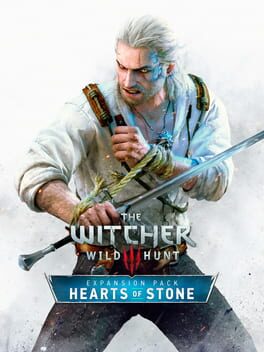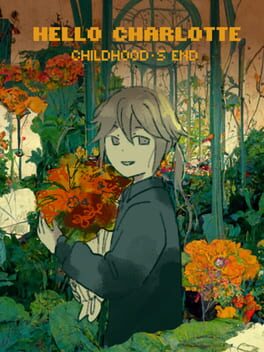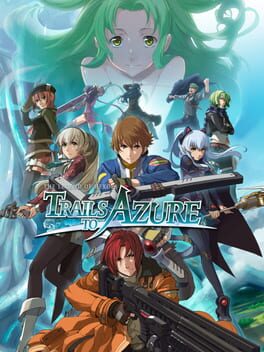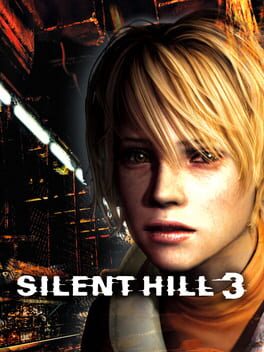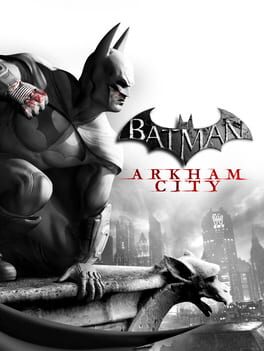Czerial
10 reviews liked by Czerial
Faust meets Witcher in one of the most deeply tragic and moving love stories of all time. Hearts of Stone is more than just a love story; it is also an interrogation of love, seeking to both affirm love and understand its proclivity for destruction when left unchecked. It retells an age-old story, but it does so in a way that excellently demonstrates The Witcher's almost supernatural ability to transform simple story concepts into some of the most intricate and riveting studies of the human condition ever seen.
Planescape: Torment
1999
My journey across The Planes has taken me to places that most men believe exist only in the realm of thought. These places I travelled to, the people I met, and the conversations I had fundamentally changed me as a person. I don’t fully know how, but regardless, I know some sort of change occurred. Perhaps writing about my experience with Planescape will help me better understand these changes and the person I am today.
When I was 14, I discovered Planescape: Torment, and while I thought the game was awesome, I could never really engage with the questions the game posed to me. I mean, how could I? What would the question “What can change the nature of a man?” mean to a 14-year-old who was only beginning to grapple with the concept of its own being? Looking back, it meant nothing to me. Now that I am an adult, however, the question means much more to me. Part of me is ashamed to admit I haven’t always been a ‘good’ person. Learning to be kind, understanding, mature, and responsible took me many years of struggling and hardship to achieve. Even today, I still struggle with this, but through that struggle, I came to learn more about myself and my nature. I can’t fully codify into words what my “nature” or “self” are because they are concepts that exist beyond language. Language can at times be limiting, so I look to art to help me look inward and better conceptualise these thoughts and feelings. I feel as though Planescape stirred the part of my soul that sought these answers, and despite it not giving me concrete answers, I feel satisfied with the new questions it posed to me. To me, good art never seeks to speak for the reader but instead provides them with the tools necessary to create subjective meaning from the experience they have with it. I believe Planescape does this quite well; I’d even go so far as to argue that it fully agrees with me here. When The Nameless One is posed the question, “What can change the nature of a man?” the game does not have him provide a concrete answer to the player. Instead, we are left with the game giving us the tools necessary to begin constructing our own answer to that question as the credits roll. Currently, I don't have an answer to that question, and I'm not sure if I will even have one a decade from now, but I'm okay with that. Part of growing up meant that I had to learn to be content with not always having an answer for everything; perhaps not every question needed an answer.
There’s more I could write, but perhaps it’s best that some things remain unwritten. I would love to endlessly navel-gaze, but that wouldn’t do me or you, the reader, any good. I apologise to anyone here who expected a formal review and was met instead by my self-indulgent introspection. There's really not much I can say about Planescape that hasn't already been said; it's an awesome ass game, and it deserves the reputation it has made for itself, enough said.
Anyways, I’d like to end this short write-up by saying that if you haven’t already played Planescape: Torment, you owe it to yourself to take that journey across The Planes. Sigil is known as the ‘City of Doors’, after all, so why don’t you look inside and see where one of them takes you?
When I was 14, I discovered Planescape: Torment, and while I thought the game was awesome, I could never really engage with the questions the game posed to me. I mean, how could I? What would the question “What can change the nature of a man?” mean to a 14-year-old who was only beginning to grapple with the concept of its own being? Looking back, it meant nothing to me. Now that I am an adult, however, the question means much more to me. Part of me is ashamed to admit I haven’t always been a ‘good’ person. Learning to be kind, understanding, mature, and responsible took me many years of struggling and hardship to achieve. Even today, I still struggle with this, but through that struggle, I came to learn more about myself and my nature. I can’t fully codify into words what my “nature” or “self” are because they are concepts that exist beyond language. Language can at times be limiting, so I look to art to help me look inward and better conceptualise these thoughts and feelings. I feel as though Planescape stirred the part of my soul that sought these answers, and despite it not giving me concrete answers, I feel satisfied with the new questions it posed to me. To me, good art never seeks to speak for the reader but instead provides them with the tools necessary to create subjective meaning from the experience they have with it. I believe Planescape does this quite well; I’d even go so far as to argue that it fully agrees with me here. When The Nameless One is posed the question, “What can change the nature of a man?” the game does not have him provide a concrete answer to the player. Instead, we are left with the game giving us the tools necessary to begin constructing our own answer to that question as the credits roll. Currently, I don't have an answer to that question, and I'm not sure if I will even have one a decade from now, but I'm okay with that. Part of growing up meant that I had to learn to be content with not always having an answer for everything; perhaps not every question needed an answer.
There’s more I could write, but perhaps it’s best that some things remain unwritten. I would love to endlessly navel-gaze, but that wouldn’t do me or you, the reader, any good. I apologise to anyone here who expected a formal review and was met instead by my self-indulgent introspection. There's really not much I can say about Planescape that hasn't already been said; it's an awesome ass game, and it deserves the reputation it has made for itself, enough said.
Anyways, I’d like to end this short write-up by saying that if you haven’t already played Planescape: Torment, you owe it to yourself to take that journey across The Planes. Sigil is known as the ‘City of Doors’, after all, so why don’t you look inside and see where one of them takes you?
Elden Ring
2022
The fallen leaves tell the story of an arborescent world order decaying from the inside out. The Land Between is slowly cracking away at the seams as its twilight draws ever closer.
This is the world that FromSoftware shows the player, a world in which we are left to pick up fragments of a bygone past piece by piece as we fight against the forces that seek to uphold the ways of old.
This world we are shown is a not-so-subtle metaphor for our own world, a world that so desperately clings onto the ideas of old (capitalism) in the hopes their old world order won’t buckle to the pressure of history and the forces of progress itself, that force being you, the Tarnished.
Elden Ring is a game of stagnation, a game that challenges the very essence of the series it originates from, a game that seeks to take the Soulsborne formula to its logical end point and burn it all down in order to start anew. In some ways it succeeds at doing this, in other ways it doesn’t, and I think the ways it succeeds at this overshadow even its most glaring failures.
The gameplay here is refined to the best it can be; it feels as though every weapon was meticulously crafted to allow for some of the most varied and unique build variety I’ve seen in a Souls game. The open-world especially lends well to enhancing the variety of Elden Ring due to its non-linear nature, which allows for some of the most freedom in exploration and gameplay I’ve seen in a modern AAA title. I sometimes feel that the gameplay, however, was so streamlined and improved to such a degree it can sometimes feel sterile in a sense. I miss the roughness and edge to the older Souls games which I feel isn't present in From's newer games. There’s times, however, where this freedom can become overwhelming and lead to parts of the world feeling either bloated with meaningless content (excess copy-and-paste bosses and dungeons) or completely barren, a problem that could have been easily remedied if the map itself was slightly reworked to be a tad bit smaller. I feel as though a rework of the map that makes it more compact and tight would have greatly benefited Elden Ring and led to the game feeling less unbalanced in the way it presented its content. Even in spite of all that, there’s a genuine understated beauty to the world of Elden Ring that I cannot deny. This world is beautiful at times, and even in its rotting and decaying state, there are still shreds of beauty left that are worth holding on to.
Moving on from the gameplay, I feel that Elden Ring truly shines narratively and thematically the most. One may be quick to write Elden Ring off as a rehash of Souls, which to an extent is a take that isn’t without its merit. I, however, believe that it’s continuity with and rupture away from Soulsborne narrative similarities that this game truly gets interesting; it feels like a meta-self-examination and final nail in the coffin for these ideas. Elden Ring has many similarities to Dark Souls; often times, the main narrative similarity people point to is the concept of a dying world held in stasis that we are forced to decide the fate of, but what Elden Ring does with this concept is far more brilliant than people give it credit for.
Elden Ring is not just taking Souls narrative and gameplay concepts to their logical end points; it’s also burning them down. Elden Ring is Miyazaki’s pivotal turning point, where he realises that this formula is not going to be sustainable forever and that it’s necessary to accelerate these ideas to their end points and then burn it all down (symbolically done through the burning of the Erdtree).
To further understand the significance of the Erdtree, I must draw upon the work of Gilles Deleuze and Félix Guattari.
In their follow-up book to Anti-Œdipus: Capitalism and Schizophrenia, A Thousand Plateaus, Deleuze and Guatarri describe two forms of organisation: rhizomatic (non-hierarchical) and arborescent (hierarchical). These two forms of organisation are obviously references to plants, with arborescence referring to trees with a central root system and trunk and rhizomes referring to potatoes and their decentralised, free-flowing root system, to put it simply. In A Thousand Plateaus, Deleuze uses these plant metaphors as a way to explain and illuminate the flaws of certain organisational structures and forms, with arborescent structures having one key flaw: their dependency on each other. If one part of the structure dies, rots, breaks, etc., the rest will follow suit, as they are dependent on each other.
Now, with this understanding of arborescence, we can tie it to the Erdtree and its functionality within the narrative of Elden Ring. In Elden Ring, the Erdtree serves as a monument that represents and upholds the old world; it maintains order and allows the world to continue as it is, but if this order is threatened or destroyed, the very same old world order it once upheld will crumble soon thereafter. It is through the actions of The Tarnished that we are able to light this arborescent structure ablaze and accelerate history forward (I would use this as a jumping-off point to explain Mark Fisher’s idea of accelerationism (not to be confused with Landian accelerationism)and how it ties into the story of Elden Ring, but this review is already too long as is).
Elden Ring is a story of stagnation and rebirth.
I ultimately see Elden Ring and, more specifically, its Frenzied Flame ending as a rejection and rupture away from the ideas of the old and an embrace of more radical new forms and ideas, while also staying in continuity with the general style of Soulsborne. For all of its flaws, of which this game has many, I firmly believe it’s a bold new step in the right direction. I believe that Elden Ring is not only the end of an era, but a new beginning and continuation into a new, radical, and free era of expression and creativity from Miyazaki and his team.
This is the world that FromSoftware shows the player, a world in which we are left to pick up fragments of a bygone past piece by piece as we fight against the forces that seek to uphold the ways of old.
This world we are shown is a not-so-subtle metaphor for our own world, a world that so desperately clings onto the ideas of old (capitalism) in the hopes their old world order won’t buckle to the pressure of history and the forces of progress itself, that force being you, the Tarnished.
Elden Ring is a game of stagnation, a game that challenges the very essence of the series it originates from, a game that seeks to take the Soulsborne formula to its logical end point and burn it all down in order to start anew. In some ways it succeeds at doing this, in other ways it doesn’t, and I think the ways it succeeds at this overshadow even its most glaring failures.
The gameplay here is refined to the best it can be; it feels as though every weapon was meticulously crafted to allow for some of the most varied and unique build variety I’ve seen in a Souls game. The open-world especially lends well to enhancing the variety of Elden Ring due to its non-linear nature, which allows for some of the most freedom in exploration and gameplay I’ve seen in a modern AAA title. I sometimes feel that the gameplay, however, was so streamlined and improved to such a degree it can sometimes feel sterile in a sense. I miss the roughness and edge to the older Souls games which I feel isn't present in From's newer games. There’s times, however, where this freedom can become overwhelming and lead to parts of the world feeling either bloated with meaningless content (excess copy-and-paste bosses and dungeons) or completely barren, a problem that could have been easily remedied if the map itself was slightly reworked to be a tad bit smaller. I feel as though a rework of the map that makes it more compact and tight would have greatly benefited Elden Ring and led to the game feeling less unbalanced in the way it presented its content. Even in spite of all that, there’s a genuine understated beauty to the world of Elden Ring that I cannot deny. This world is beautiful at times, and even in its rotting and decaying state, there are still shreds of beauty left that are worth holding on to.
Moving on from the gameplay, I feel that Elden Ring truly shines narratively and thematically the most. One may be quick to write Elden Ring off as a rehash of Souls, which to an extent is a take that isn’t without its merit. I, however, believe that it’s continuity with and rupture away from Soulsborne narrative similarities that this game truly gets interesting; it feels like a meta-self-examination and final nail in the coffin for these ideas. Elden Ring has many similarities to Dark Souls; often times, the main narrative similarity people point to is the concept of a dying world held in stasis that we are forced to decide the fate of, but what Elden Ring does with this concept is far more brilliant than people give it credit for.
Elden Ring is not just taking Souls narrative and gameplay concepts to their logical end points; it’s also burning them down. Elden Ring is Miyazaki’s pivotal turning point, where he realises that this formula is not going to be sustainable forever and that it’s necessary to accelerate these ideas to their end points and then burn it all down (symbolically done through the burning of the Erdtree).
To further understand the significance of the Erdtree, I must draw upon the work of Gilles Deleuze and Félix Guattari.
In their follow-up book to Anti-Œdipus: Capitalism and Schizophrenia, A Thousand Plateaus, Deleuze and Guatarri describe two forms of organisation: rhizomatic (non-hierarchical) and arborescent (hierarchical). These two forms of organisation are obviously references to plants, with arborescence referring to trees with a central root system and trunk and rhizomes referring to potatoes and their decentralised, free-flowing root system, to put it simply. In A Thousand Plateaus, Deleuze uses these plant metaphors as a way to explain and illuminate the flaws of certain organisational structures and forms, with arborescent structures having one key flaw: their dependency on each other. If one part of the structure dies, rots, breaks, etc., the rest will follow suit, as they are dependent on each other.
Now, with this understanding of arborescence, we can tie it to the Erdtree and its functionality within the narrative of Elden Ring. In Elden Ring, the Erdtree serves as a monument that represents and upholds the old world; it maintains order and allows the world to continue as it is, but if this order is threatened or destroyed, the very same old world order it once upheld will crumble soon thereafter. It is through the actions of The Tarnished that we are able to light this arborescent structure ablaze and accelerate history forward (I would use this as a jumping-off point to explain Mark Fisher’s idea of accelerationism (not to be confused with Landian accelerationism)and how it ties into the story of Elden Ring, but this review is already too long as is).
Elden Ring is a story of stagnation and rebirth.
I ultimately see Elden Ring and, more specifically, its Frenzied Flame ending as a rejection and rupture away from the ideas of the old and an embrace of more radical new forms and ideas, while also staying in continuity with the general style of Soulsborne. For all of its flaws, of which this game has many, I firmly believe it’s a bold new step in the right direction. I believe that Elden Ring is not only the end of an era, but a new beginning and continuation into a new, radical, and free era of expression and creativity from Miyazaki and his team.
In a lot of circles, Trails to Azure has garnered itself a monolithic reputation as a legendary title within the genre. Suffice to say, I had some really big expectations for this game. As someone who absolutely loved both Sky SC and Zero, I was just about ready to join the choir and sing this game's unending praises.
That being said, did Azure manage to meet said expectations and fully deliver? Well, it's a complicated answer. Because while it did end up becoming my favorite game in the series, the flaws Azure and it's predecessors possess have been made more evident than ever before.
For all intents and purposes, I think Azure is a fantastic game. It's an incredibly refined experience with some of the best scenario writing and most bombastic storytelling the genre has to offer. The stakes are incredibly high and the fact that this game was even able to deliver on most of its ambitions is an absolute marvel to me.
That being said, I think Falcom can be a bit... overzealous with their storytelling in regards to this series. They're always trying to shake and subvert the foundation that the narrative rests upon. This isn't a bad thing in and of itself, but in retrospect I think they could have exercised a lot more restraint in the process.
Here's a few spoiler free examples of what I'm talking about in the context of this game alone:
Certain half baked conflicts are introduced late into the game, and swept back under the rug just as quickly as they're introduced.
Certain events are played up very heavily, but are lacking in proper consequences which fails to sell their impact.
Certain characters have their entire backstories hidden behind optional scenes that of which you can only see one of per playthrough.
There's a certain plot twist during the finale (If you've played the game you definitely know what I'm talking about) so pointless and diminishing that I've seen it flat out just kill the game for some people.
I say the word "certain" a lot here, because I don't want to sell Azure's completely off the wall writing choices as a ubiquitously bad thing. For every dubious scene or questionably unnecessary plot twist in this game, there's about five more that are completely astonishing and perfectly executed. If Azure commits to anything, it's the proposition of a narrative not content with sitting still and letting things slow down. From the Trade Conference onwards, I was on the edge of my seat for the entire game and never once was I bored.
I can't promise you'll find a perfectly written masterpiece within this game, it's got too many cuts and bruises for me to say that with good conscience. However, what it offers in spite of that is so utterly captivating and unforgettable that I can't help but completely cherish it all the same.
That being said, did Azure manage to meet said expectations and fully deliver? Well, it's a complicated answer. Because while it did end up becoming my favorite game in the series, the flaws Azure and it's predecessors possess have been made more evident than ever before.
For all intents and purposes, I think Azure is a fantastic game. It's an incredibly refined experience with some of the best scenario writing and most bombastic storytelling the genre has to offer. The stakes are incredibly high and the fact that this game was even able to deliver on most of its ambitions is an absolute marvel to me.
That being said, I think Falcom can be a bit... overzealous with their storytelling in regards to this series. They're always trying to shake and subvert the foundation that the narrative rests upon. This isn't a bad thing in and of itself, but in retrospect I think they could have exercised a lot more restraint in the process.
Here's a few spoiler free examples of what I'm talking about in the context of this game alone:
Certain half baked conflicts are introduced late into the game, and swept back under the rug just as quickly as they're introduced.
Certain events are played up very heavily, but are lacking in proper consequences which fails to sell their impact.
Certain characters have their entire backstories hidden behind optional scenes that of which you can only see one of per playthrough.
There's a certain plot twist during the finale (If you've played the game you definitely know what I'm talking about) so pointless and diminishing that I've seen it flat out just kill the game for some people.
I say the word "certain" a lot here, because I don't want to sell Azure's completely off the wall writing choices as a ubiquitously bad thing. For every dubious scene or questionably unnecessary plot twist in this game, there's about five more that are completely astonishing and perfectly executed. If Azure commits to anything, it's the proposition of a narrative not content with sitting still and letting things slow down. From the Trade Conference onwards, I was on the edge of my seat for the entire game and never once was I bored.
I can't promise you'll find a perfectly written masterpiece within this game, it's got too many cuts and bruises for me to say that with good conscience. However, what it offers in spite of that is so utterly captivating and unforgettable that I can't help but completely cherish it all the same.
Persona 5 Royal
2019
This review contains spoilers
I've played this game twice, and the more time passes, the more I realize that the story and everything surrounding it is honestly kinda doo doo balls.
Persona 5 is a game that tries to paint itself as being progressive and forward thinking, but ultimately just ends up becoming reactionary in the proccess. Well, I would say try, but it really doesn't. The game kinda namedrops some key words like "rebellion" and "opression", but it never really goes anywhere with it beyond "man it's kinda fucked up how that one evil guy is doing that one evil thing we gotta kick his ass." It's not a sentiment I necessarily disagree with, but I honestly just find it to be really shallow, and not interesting enough to make a 90+ hour long game out of. By the end of vanilla, good old Yaldy is spouting off some buzzwords about the "collective unconscious" or whatever, and my eyes are just rolling into the back of my head because this is the third time in a row Hashino has done this shit. It's probably even worse in Royal's 3rd semester, as the Phantom Thieves finally cement their role as the secret defenders of the status quo. Welp, there goes all of the borderline nonexistent messaging and thematic structure built over the last ~90 hours!
Beyond that, this game undercuts itself in multiple other ways. My favorite example of this first arc of the game. Basically there's a predatory teacher in relationships with his high school students, so you fuck him up and make him suffer for his crimes. This stance and message the game pushes is completely contradicted by the fact that this game lets you date one of the school's OTHER(???) predatory teachers relatively soon afterwards. Not only that, but it then takes Ann (one of the abuse victims) and dresses her up in a dominatrix fit for the rest of the entire game. The worst part is that she doesn't even have agency over wearing it either. I've seen some people pass this off as "reclaiming her sexuality" but just like, no. The game evidently doesn't take her seriously, as it makes an incessant amount of creepy ass jokes about it. I don't care if you throw some 12 hour long YouTube video at me, I'm not buying that shit. All I'm gonna say is that Epstein would've been all over this game.
On the topic of the characters, they suck so much dude. Persona 5 might have one of the most bland casts I've ever seen in a JRPG. As said before, this game is like 100 hours long, and I've played it twice. So, when I tell you that I genuinely can't think of anything remotley compelling about any of these characters, I mean it, all of them. Persona 5 also continues the awful trend of hiding key character moments and development (lol) behind optional social links. The worst part is that because they're optional, they can't be a part of the main story in nearly any capacity. The weird thing about this is that ATLUS nailed this balance extremely well in Persona 3, so seeing them completely unlearn it during Persona 4, and then continue to double down on it in Persona 5 is just absolutely bizzare to me. Witnout fail, the cast is also extremely annoying. Sure, Akechi might secretly be some "uber complex flawed character" or whatever, but that motherfucker sounds like a 15 year old on a message board trying to talk like Sephiroth. Like you cannot be asking me to take his ass seriously.
Okay, so I gave this game a 6/10. What's up with that?
In a cruel twist of fate, just about everything else in this game is pretty much great. From the frenetic fast paced combat, to the music, to the striking art style, it's all there. Admittedly, there's some pretty good reasons people don't shut up about this game, and I get it. I know I talked some mad shit about Yaldy and Maruki earlier, but they do genuinely have some very good fights that I absolutely adore, and Maruki's dungeon is fantastic. An awful story can only really dampen my experience with a game so much if the act of playing it is reminiscent of having heroin getting shot straight into my veins. If you were ever wondering why I played this game twice, this is it.
At the end of the day, Persona 5 strikes me as a game that doesn't really fully believe or commit to anything. It's almost as if ATLUS made a really good JRPG, but forgot that they were also supposed to be writing a story for it. It kinda strikes me as one of those visual novels where some really crazy shit happens, but they do the whole dramatic sing and dance of "oooohh this is what it means to live" so people just kinda get tricked into thinking it's good. Clearly it worked in this game's case, since there's legions of 15 year olds willing to sell their soul to this game. And you know what? That's fine. If I was 15 years old, I'd probably think this game is the shit too.
Persona 5 is a game that tries to paint itself as being progressive and forward thinking, but ultimately just ends up becoming reactionary in the proccess. Well, I would say try, but it really doesn't. The game kinda namedrops some key words like "rebellion" and "opression", but it never really goes anywhere with it beyond "man it's kinda fucked up how that one evil guy is doing that one evil thing we gotta kick his ass." It's not a sentiment I necessarily disagree with, but I honestly just find it to be really shallow, and not interesting enough to make a 90+ hour long game out of. By the end of vanilla, good old Yaldy is spouting off some buzzwords about the "collective unconscious" or whatever, and my eyes are just rolling into the back of my head because this is the third time in a row Hashino has done this shit. It's probably even worse in Royal's 3rd semester, as the Phantom Thieves finally cement their role as the secret defenders of the status quo. Welp, there goes all of the borderline nonexistent messaging and thematic structure built over the last ~90 hours!
Beyond that, this game undercuts itself in multiple other ways. My favorite example of this first arc of the game. Basically there's a predatory teacher in relationships with his high school students, so you fuck him up and make him suffer for his crimes. This stance and message the game pushes is completely contradicted by the fact that this game lets you date one of the school's OTHER(???) predatory teachers relatively soon afterwards. Not only that, but it then takes Ann (one of the abuse victims) and dresses her up in a dominatrix fit for the rest of the entire game. The worst part is that she doesn't even have agency over wearing it either. I've seen some people pass this off as "reclaiming her sexuality" but just like, no. The game evidently doesn't take her seriously, as it makes an incessant amount of creepy ass jokes about it. I don't care if you throw some 12 hour long YouTube video at me, I'm not buying that shit. All I'm gonna say is that Epstein would've been all over this game.
On the topic of the characters, they suck so much dude. Persona 5 might have one of the most bland casts I've ever seen in a JRPG. As said before, this game is like 100 hours long, and I've played it twice. So, when I tell you that I genuinely can't think of anything remotley compelling about any of these characters, I mean it, all of them. Persona 5 also continues the awful trend of hiding key character moments and development (lol) behind optional social links. The worst part is that because they're optional, they can't be a part of the main story in nearly any capacity. The weird thing about this is that ATLUS nailed this balance extremely well in Persona 3, so seeing them completely unlearn it during Persona 4, and then continue to double down on it in Persona 5 is just absolutely bizzare to me. Witnout fail, the cast is also extremely annoying. Sure, Akechi might secretly be some "uber complex flawed character" or whatever, but that motherfucker sounds like a 15 year old on a message board trying to talk like Sephiroth. Like you cannot be asking me to take his ass seriously.
Okay, so I gave this game a 6/10. What's up with that?
In a cruel twist of fate, just about everything else in this game is pretty much great. From the frenetic fast paced combat, to the music, to the striking art style, it's all there. Admittedly, there's some pretty good reasons people don't shut up about this game, and I get it. I know I talked some mad shit about Yaldy and Maruki earlier, but they do genuinely have some very good fights that I absolutely adore, and Maruki's dungeon is fantastic. An awful story can only really dampen my experience with a game so much if the act of playing it is reminiscent of having heroin getting shot straight into my veins. If you were ever wondering why I played this game twice, this is it.
At the end of the day, Persona 5 strikes me as a game that doesn't really fully believe or commit to anything. It's almost as if ATLUS made a really good JRPG, but forgot that they were also supposed to be writing a story for it. It kinda strikes me as one of those visual novels where some really crazy shit happens, but they do the whole dramatic sing and dance of "oooohh this is what it means to live" so people just kinda get tricked into thinking it's good. Clearly it worked in this game's case, since there's legions of 15 year olds willing to sell their soul to this game. And you know what? That's fine. If I was 15 years old, I'd probably think this game is the shit too.
Cyberpunk 2077
2020
No matter where we come from we’re all headed to the same place.
The eternal oblivion is an inevitability every human must grapple with, the concept of death is terrifying and for much of our lives we will spend many years pondering the idea and coming to terms with the inevitability of such a fate. It’s our choice whether or not we will waste those moments or if we will face down death and live our lives to the fullest despite our eventual fate. Cyberpunk is a game about life and death, how we grapple with our mortality and what will use our remaining time on this planet doing. Will we push away the ones we love to avoid hurting them or will we spend our final weeks making the most of that time with our loved ones?
The dilemma of the ticking death clock on V is what truly makes this game special, we’re faced with the inevitability of death and it forces the player and V to make the most of their time, there is no guarantee that V will survive and find a way out so we work under the assumption that we must make the most of our time on this Earth before we die. That limited time is what makes this game special to me, we’re forced to live life to the fullest and in spite of all of that V keeps fighting, not only for themself, but for their friends, the ones they lost, and for a better future, even if it’s a future that they won’t live to see.
Cyberpunk for all of its flaws is still a beautiful game and one I will never forget, it’s a powerful experience that will sit with me for many years to come. The bonds I formed in this game, the time I spent in Night City and the Badlands, the story I experienced, it’s all truly unforgettable.
Arguably the greatest open-world RPG I have played, it sits among greats like Morrowind, New Vegas, and Daggerfall.
“V, never stop fighting.”
-Johnny Silverhand
The eternal oblivion is an inevitability every human must grapple with, the concept of death is terrifying and for much of our lives we will spend many years pondering the idea and coming to terms with the inevitability of such a fate. It’s our choice whether or not we will waste those moments or if we will face down death and live our lives to the fullest despite our eventual fate. Cyberpunk is a game about life and death, how we grapple with our mortality and what will use our remaining time on this planet doing. Will we push away the ones we love to avoid hurting them or will we spend our final weeks making the most of that time with our loved ones?
The dilemma of the ticking death clock on V is what truly makes this game special, we’re faced with the inevitability of death and it forces the player and V to make the most of their time, there is no guarantee that V will survive and find a way out so we work under the assumption that we must make the most of our time on this Earth before we die. That limited time is what makes this game special to me, we’re forced to live life to the fullest and in spite of all of that V keeps fighting, not only for themself, but for their friends, the ones they lost, and for a better future, even if it’s a future that they won’t live to see.
Cyberpunk for all of its flaws is still a beautiful game and one I will never forget, it’s a powerful experience that will sit with me for many years to come. The bonds I formed in this game, the time I spent in Night City and the Badlands, the story I experienced, it’s all truly unforgettable.
Arguably the greatest open-world RPG I have played, it sits among greats like Morrowind, New Vegas, and Daggerfall.
“V, never stop fighting.”
-Johnny Silverhand
